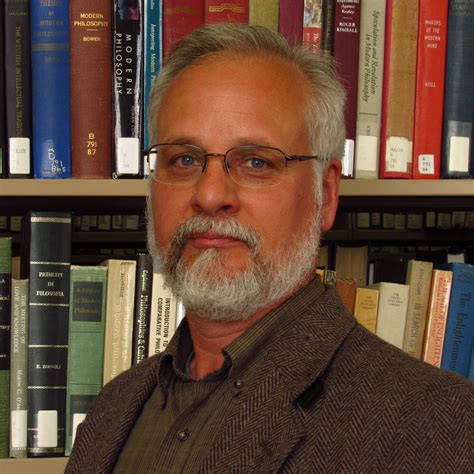A Quote by Mark Fisher
Nietzsche should not be taken seriously as a political theorist, at least not at the level of his positive prescriptions. But the Nietzsche who denounces the insipidity and mediocrity that result from democracy's levelling impulses could not be more acute.
Related Quotes
I rather shared Nietzsche's conception of the kind of individual that an ideal education should be cultivating. 'Authenticity' is not Nietzsche's term, but as used by some existentialists, it nicely captures what Nietzsche admired - the resolve of an individual person to forge his or her own 'table of values', to be emancipated from strait-jacketing conventions, traditions, and ideologies. As embodied in the 'Overman', authenticity is the antidote to 'bad' nihilism.
To avert the danger [posed by theory] to life, Nietzsche could choose one of two ways: he could insist on the strictly esoteric character of the theoretical analysis of life - that is, restore the Platonic notion of the noble delusion - or else he could deny the possibility of theory proper and so conceive of thought as essentially subservient to, or dependent on, life or fate... If not Nietzsche himself, at any rate his successors [Heidegger] adopted the second alternative.
Nietzsche saw that ultimately the problem of nihilism is the problem of what to do with time: Why keep investing in the future when there is no longer any transcendental guarantor, a positive end of time as ultimate reconciliation or redemption, ensuring a pay-off for this investment? Nietzsche's solution - his attempted overcoming of nihilism - consists in affirming the senselessness of becoming as such - all becoming, without reservation or discrimination.
where Nietzsche's response to the equation of socialism and morality was to question the value of morality, at least as it had been customarily understood, economists like Mises and Hayek pursued a different path, one Nietzsche would never have dared to take: they made the market the very expression of morality.
In the helter-skelter of this book, I didn't develop my views as theory. In fact, I even believe that efforts of that kind are tainted with ponderousness. Nietzsche wrote "with his blood," and criticizing, or, better, experiencing him means pouring out one's lifeblood. It was only with my life that I wrote the Nietzsche book that I had planned.
The trouble with being a secular humanist is that we don't have a congregation. We don't meet so it's a very flimsy tribe, but there's a wonderful quotation from Nietzsche. Nietzsche said, Only a person of deep faith can afford the luxury of skepticism. Something perfectly is going on. I do not doubt it, but the explanations I hear do not satisfy me.
The life of West, Nietzsche said, is based on Christianity. The values of the West are based on Christianity. Some of these values seem to have taken a life of their own, and this gives us the illusion that we can get rid of Christianity and keep the values. This, Nietzsche says, is an illusion...Remove the Christian foundation, and the values must go too.




































